The verdict: The redesigned 2018 GMC Terrain is a refined and comfortable compact SUV, and it gives shoppers plenty of choices, including an optional diesel engine and an upscale Denali trim.
Versus the competition: The compact SUV class is crowded, but the Terrain's available tech features, modern drivetrains and impressive roominess help it stand out.
Most vehicles get larger when redesigned, but the 2018 Terrain is one of the rare ones that's smaller than the SUV it replaces — at least externally. The Terrain and its sibling SUV, the Chevrolet Equinox, had long been two of the larger compact SUVs available, but the 2018 models are now closer in size to competitors like the Honda CR-V and Toyota RAV4. (See these four SUVs' specs compared here.)
The new Terrain starts at $25,970, including a $975 destination charge, for a base, front-wheel-drive SL trim with the standard turbocharged gas 1.5-liter four-cylinder. I tested three versions of the SUV to experience its three available engines: an all-wheel-drive SLE with the 1.5-liter engine (as-tested price of $34,105), a front-wheel-drive SLT with the turbo-diesel 1.6-liter four-cylinder ($39,545 as-tested), and an all-wheel-drive SLT with the turbocharged gas 2.0-liter four-cylinder ($42,045 as-tested).
Exterior & Styling
Polarizing looks aren't normally part of the compact SUV formula, but that's what the prior Terrain delivered with its bulging fenders, squared-off wheel openings and blocky front end. While the conservatively styled Equinox was designed to blend in, the Terrain stood out.
With its 2018 redesign, the Terrain trades many of its old controversial design cues for new styling elements that may be just as controversial — like boomerang-shaped headlights and floating-roof styling. Even so, the overall look is tamer and more traditional.
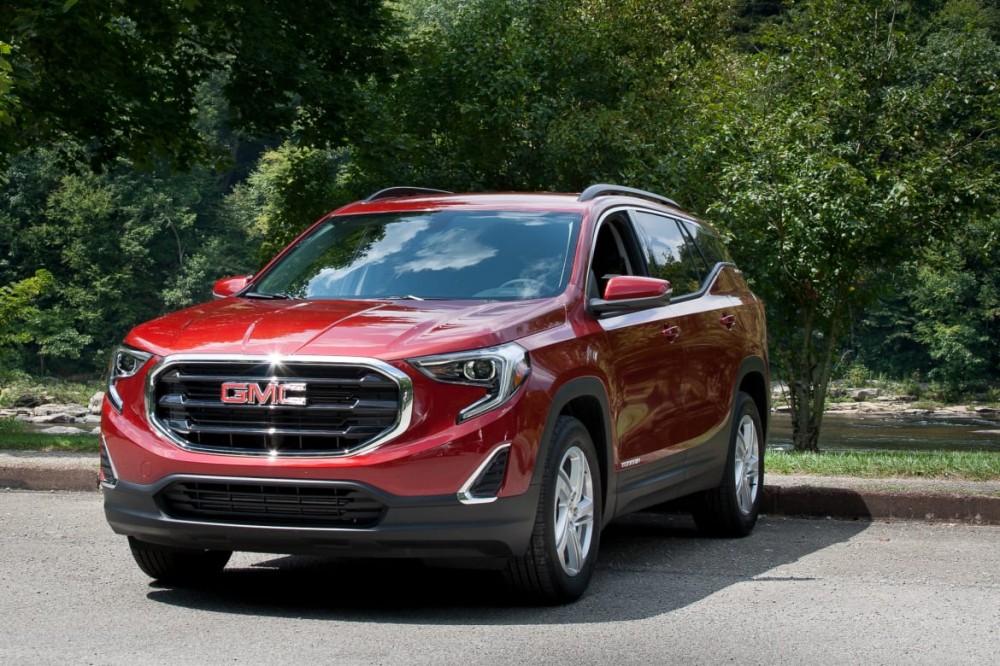
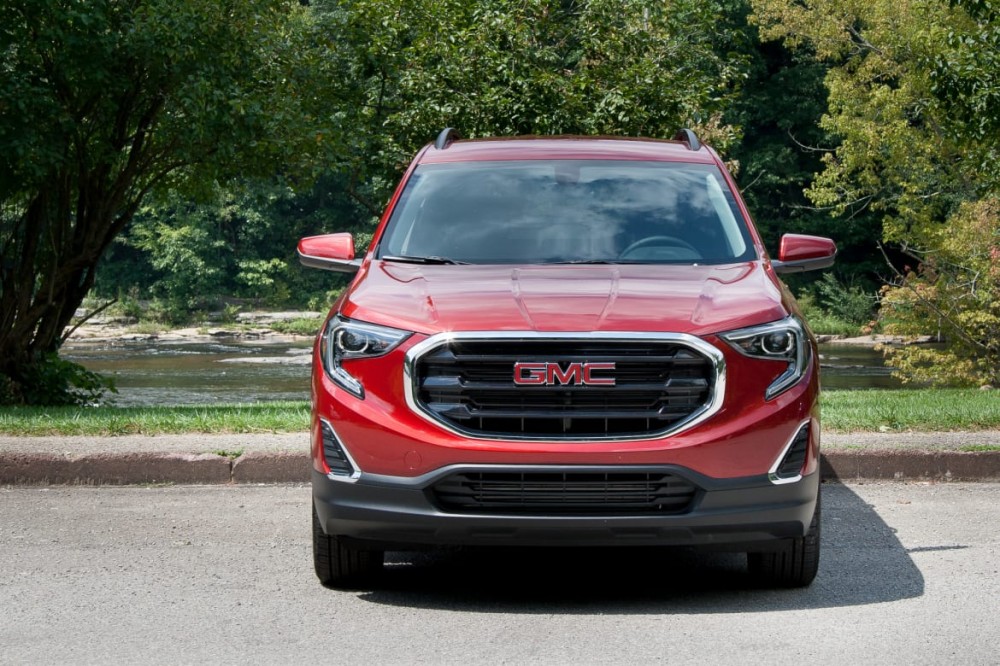
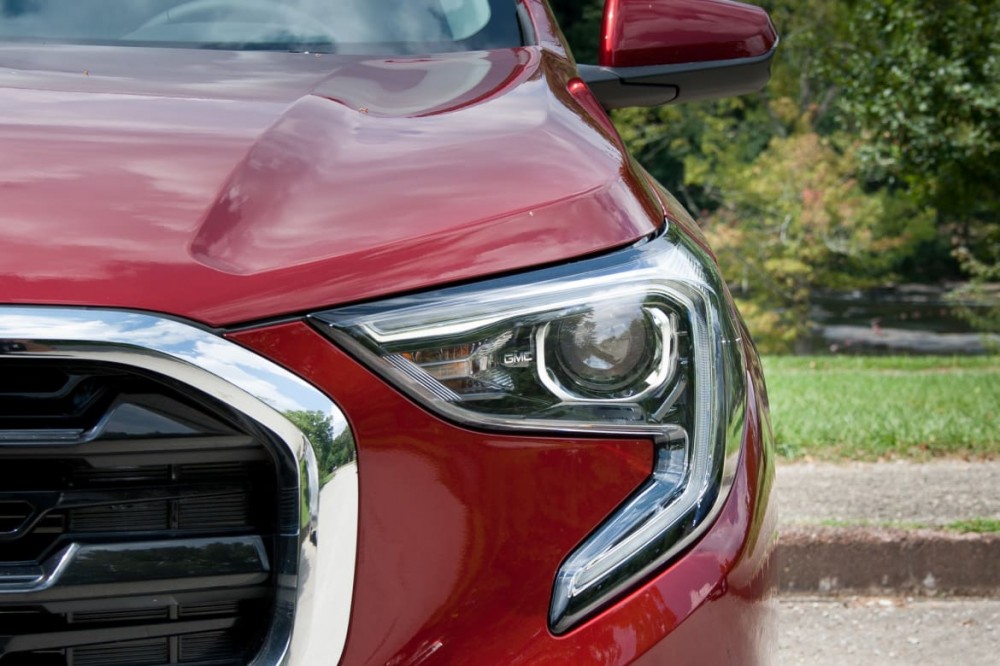
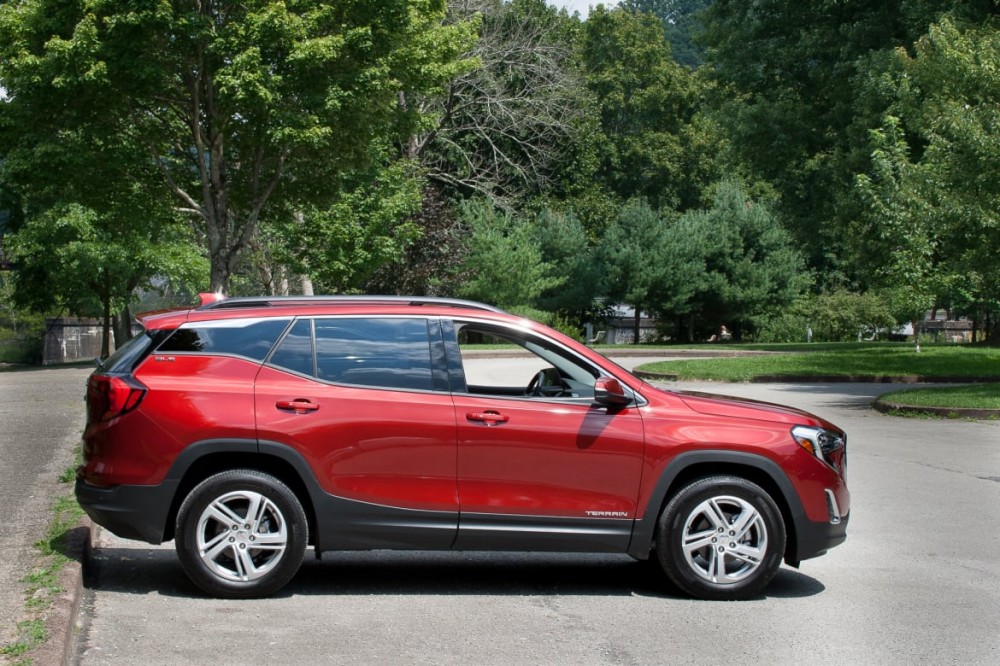
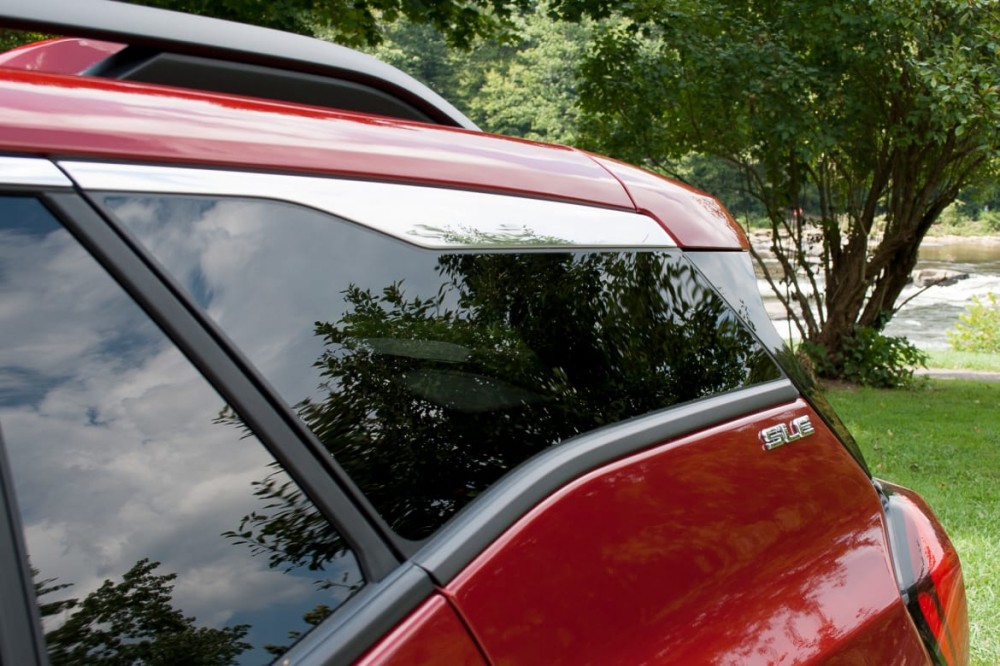
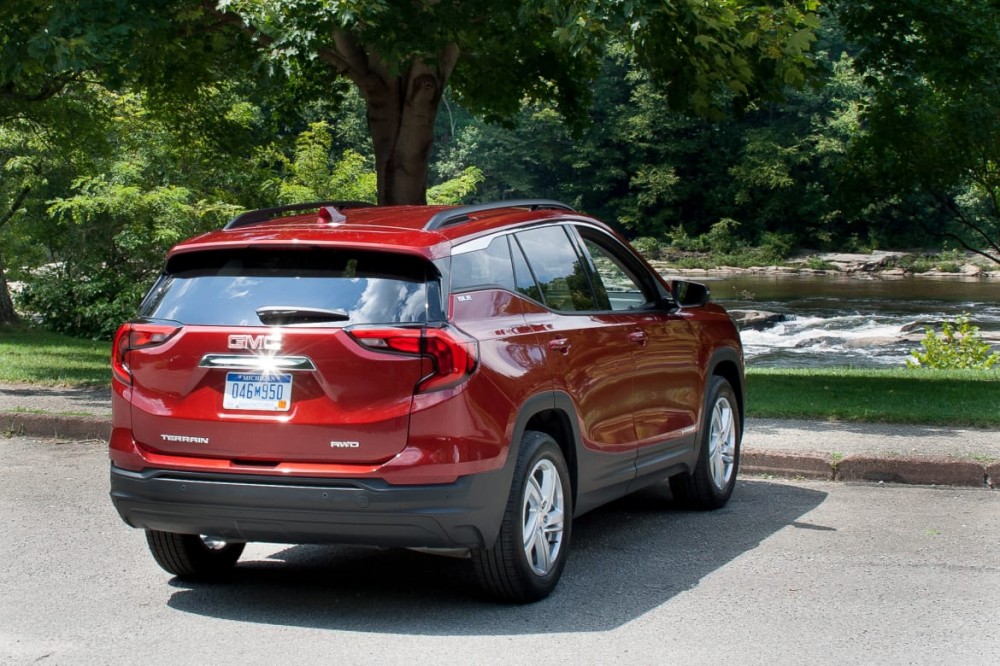
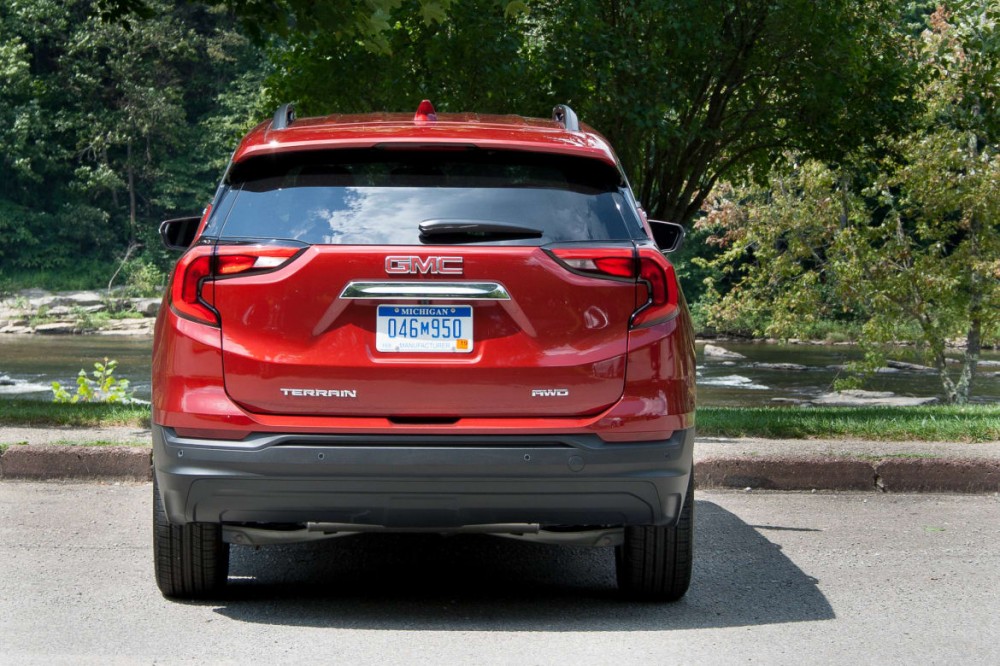
How It Drives
You'll find a wide range of performance in the compact SUV class, from the poky Jeep Compass to the powerful Ford Escape and its optional high-output turbocharged engine. The Terrain's three available engines each have distinct characteristics, but all of them deliver more than adequate power.
I was especially impressed with the base turbo 1.5-liter engine, which is rated for a healthy 170 horsepower and 203 pounds-feet of torque. I wasn't sure how the small engine would perform in an all-wheel-drive Terrain, but it felt reasonably quick and even had a bit of reserve power for passing slower-moving traffic.
The 1.5-liter engine drives a nine-speed automatic transmission that makes smooth, unobtrusive shifts and is willing to kick down to a lower gear when you need more power. The automatic does tend to stay in too high a gear when exiting corners, sapping available power, but it's otherwise cooperative and didn't exhibit any of the unpleasant behavior we've experienced with other nine-speed transmissions, like those in the Honda Pilot and Jeep Cherokee.
The optional turbo 2.0-liter four-cylinder is considerably stronger, putting the Terrain's performance on par with an Escape powered by its higher-output four-cylinder. With 252 hp and 260 pounds-feet of torque, this engine gives the Terrain the type of eager acceleration and high-speed passing power that's relatively rare among mainstream compact SUVs. You'll also hear more engine sounds in the cabin than with the 1.5-liter four-cylinder, but if you're looking for extra power, get the 2.0-liter.
In a move that breaks with most of its competitors, the Terrain is also available with a turbo-diesel 1.6-liter four-cylinder that teams with a six-speed automatic transmission. Rated at 137 hp and 240 pounds-feet of torque, the diesel is the fuel-economy leader of the trio, with an EPA-estimated 28/39/32 mpg city/highway/combined with front-wheel drive. That 32-mpg combined rating is 4 and 8 mpg better than the gas 1.5-liter and 2.0-liter engines, respectively, and matches the EPA estimate for the 2018 Toyota RAV4 Hybrid, which is all-wheel drive only.
Whether idling or accelerating, the diesel is notably louder than the gas engines, but the clattery sounds that have defined diesels for years have been largely eliminated, replaced with a gravelly growl. There's also more vibration in the cabin — including through the steering wheel — and accelerator pedal response is more gradual.
Aside from its impressive fuel economy, abundant low-end torque is the diesel's other key attribute. With four adults and some luggage aboard, a front-wheel-drive, turbo-diesel Terrain powered up hills without needing to downshift and accelerated to highway speeds easily.
Higher maximum towing capacity is another typical diesel benefit, but the diesel Terrain's is no better than the gas 1.5-liter; both engines are rated to tow up to 1,500 pounds, while the gas 2.0-liter can tow up to 3,500 pounds.
I like how GMC has tuned the suspension. Like a lot of small SUVs, the ride is on the firm side. You'll feel it when crossing railroad tracks, but it's also controlled and composed. The Terrain doesn't feel as athletic as the Escape, and its steering doesn't have much feedback, but it has good driving refinement — as does the redesigned 2018 Volkswagen Tiguan, the winner of our 2017 Compact SUV Challenge. In this way, the Terrain is better than the Nissan Rogue.
The Inside
The new Terrain's cabin is a big improvement over its predecessor, which was from an earlier era and no longer measured up to the competition. The new interior has a clean design, with upscale materials like soft-touch surfaces and aluminum trim.
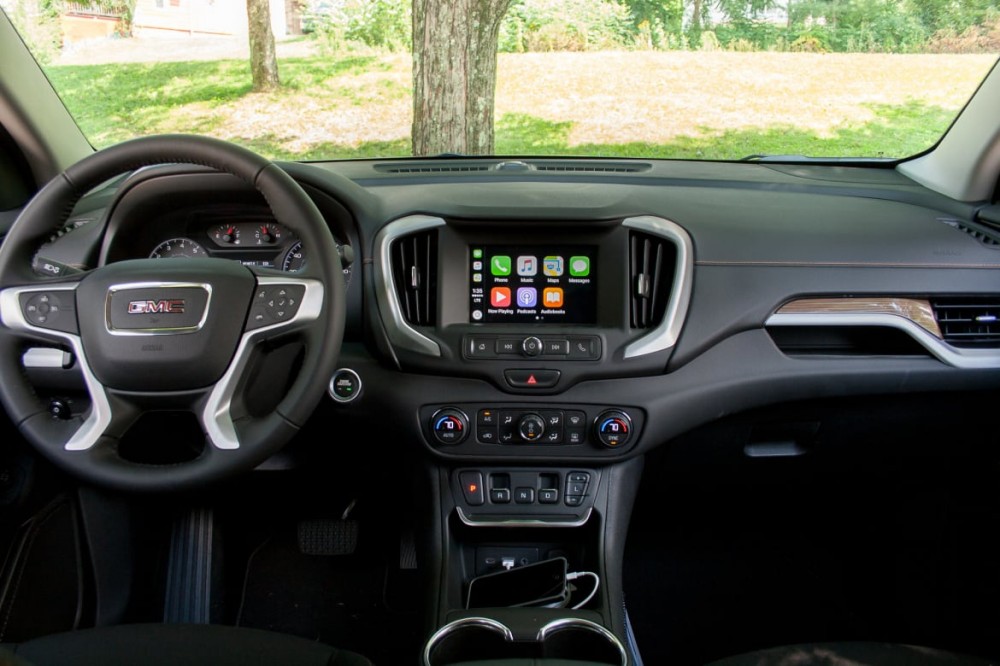
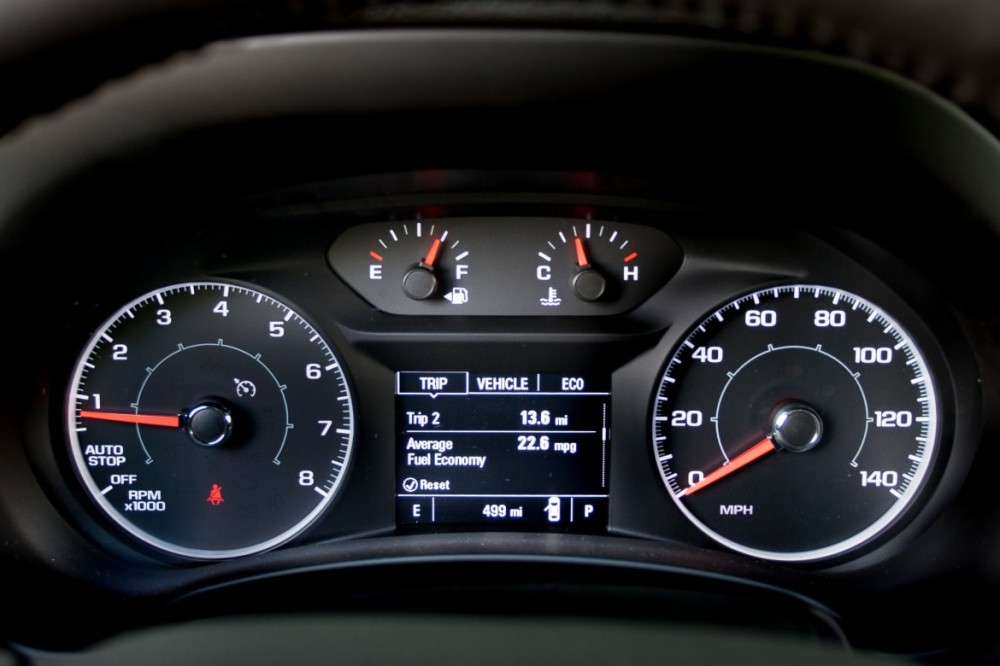
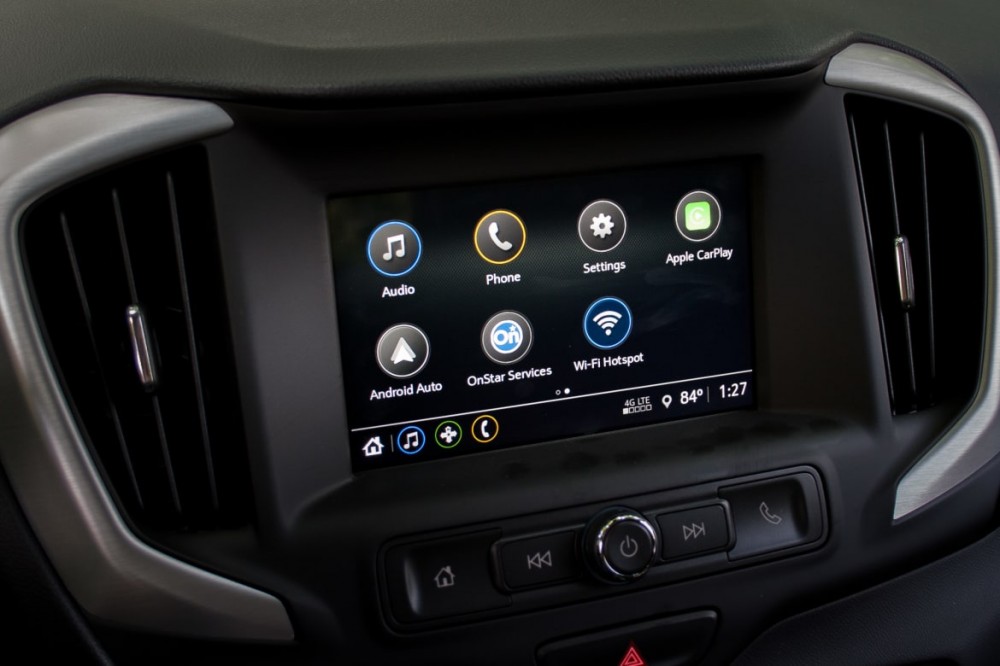
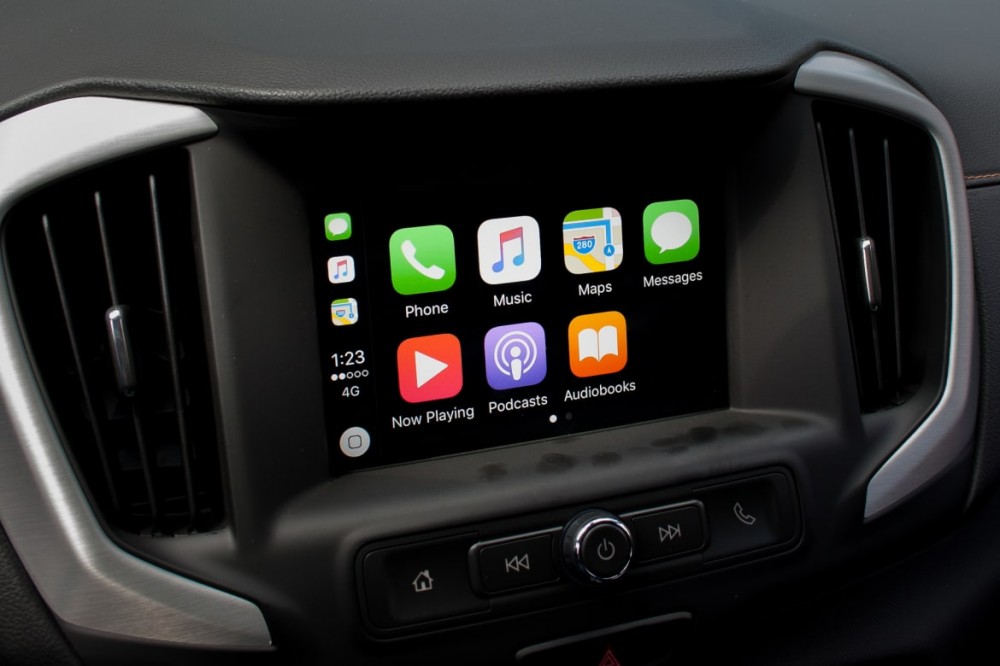
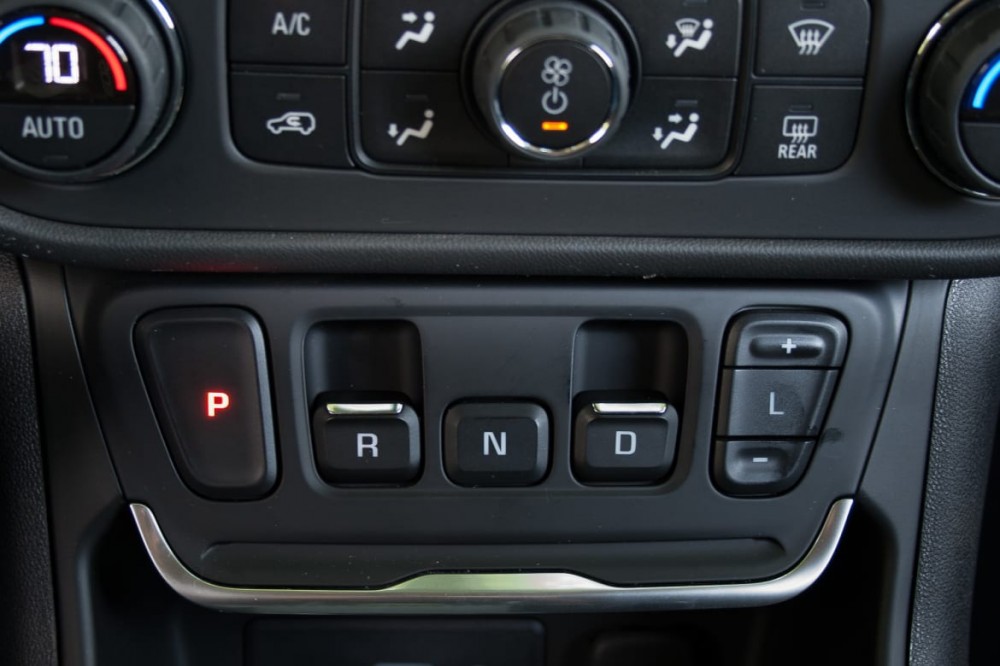
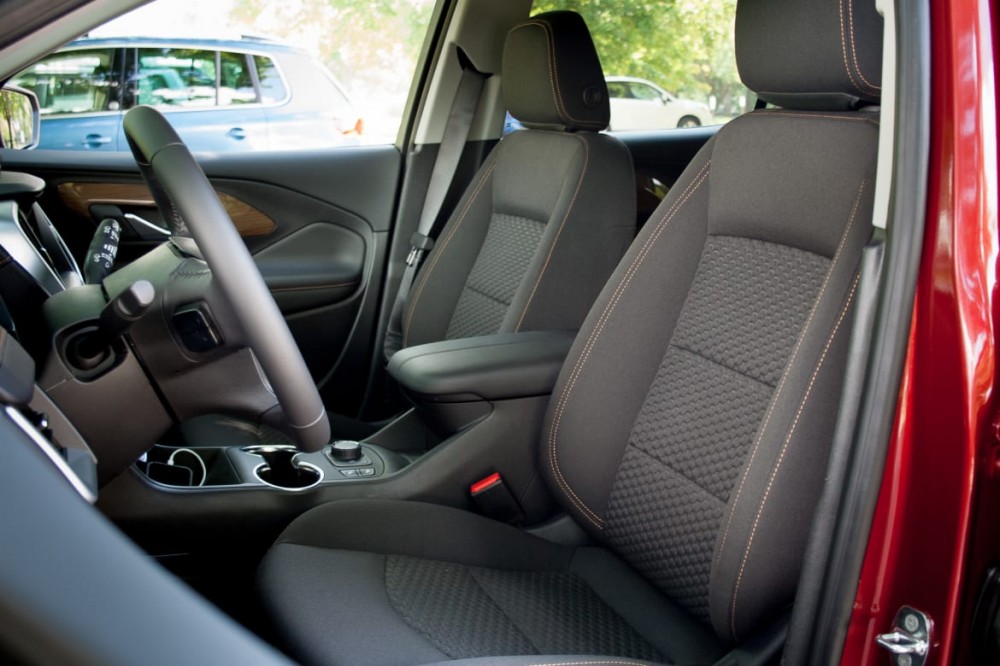
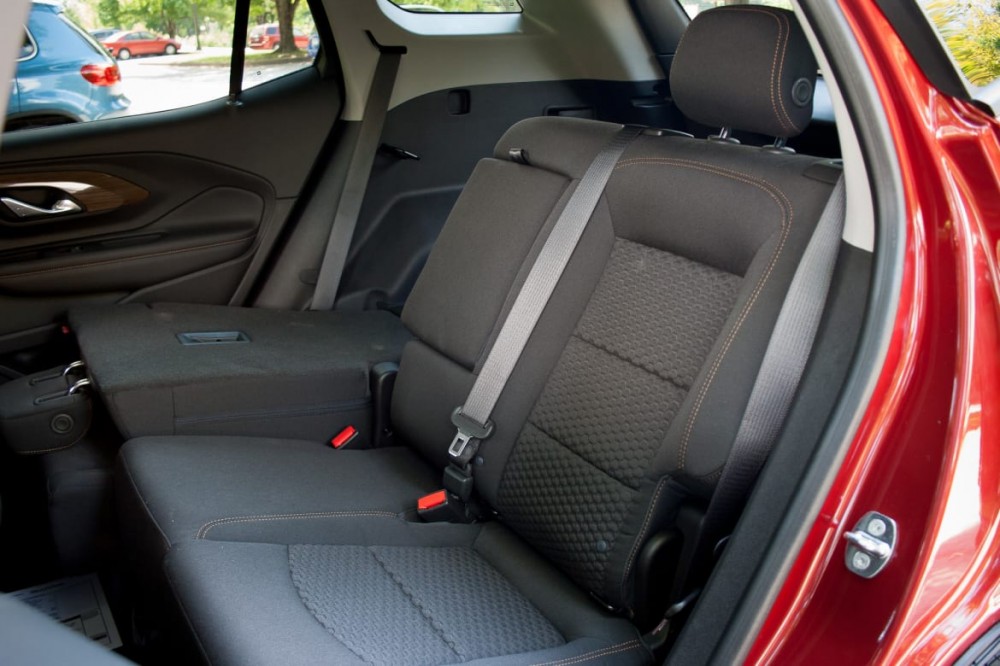
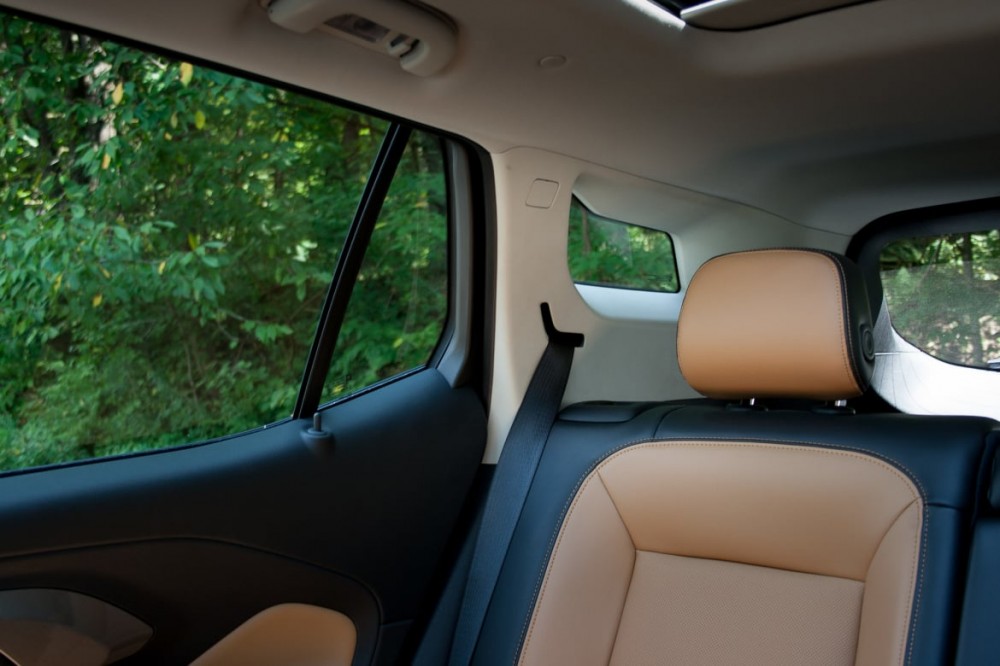
Cloth upholstery is standard and leather is optional. I thought the driver's seat was comfortable, but some might find the backrest a little narrow; you don't need to move that much before you feel the side bolsters, but they didn't grip me too tightly.
I was skeptical of the Terrain's new gear selector, but it was easier to use by feel alone than competing push-button systems.
The previous Terrain had a sliding and reclining backseat, but the redesigned model trades that for a fixed bench seat with a 60/40-split reclining backrest. The backseat is roomy for adults but not as spacious as the enormous backseat in the 2018 Tiguan. The seat is mostly comfortable, but the upper portion of the backrest pressed oddly against my back. It was more pronounced in models with cloth seats.
The Terrain's updated multimedia system has a standard 7-inch touchscreen and supports Bluetooth streaming audio as well as Apple CarPlay and Android Auto smartphone connectivity. An optional 8-inch touchscreen incorporates cloud-based user profiles that can be recalled from another GM car that supports this technology. New graphics give the screen a cleaner appearance, and the system responds quickly to menu selections.
I was skeptical of the Terrain's new gear selector, which employs both buttons and toggle switches, but it was easier to use by feel alone than competing push-button systems. The system's horizontal layout is key; the arrangement lets you use your index and middle fingers to quickly switch between Reverse and Drive when making a three-point turn, for instance. It didn't take long to get used to it. It also frees up a lot of space in the center console for a storage bin, side-by-side cupholders and additional controls.
The Terrain offers 29.6 cubic feet of cargo room behind the backseat and 63.3 cubic feet with the backseat folded. You can fold the split seatback yourself, or there are handles on the right-side cargo wall that release it. The backrest is spring-loaded so it folds by itself, creating an extended flat load floor. With the standard fold-flat front passenger seat also lowered, the Terrain can carry cargo up to 8 feet long in the cabin.
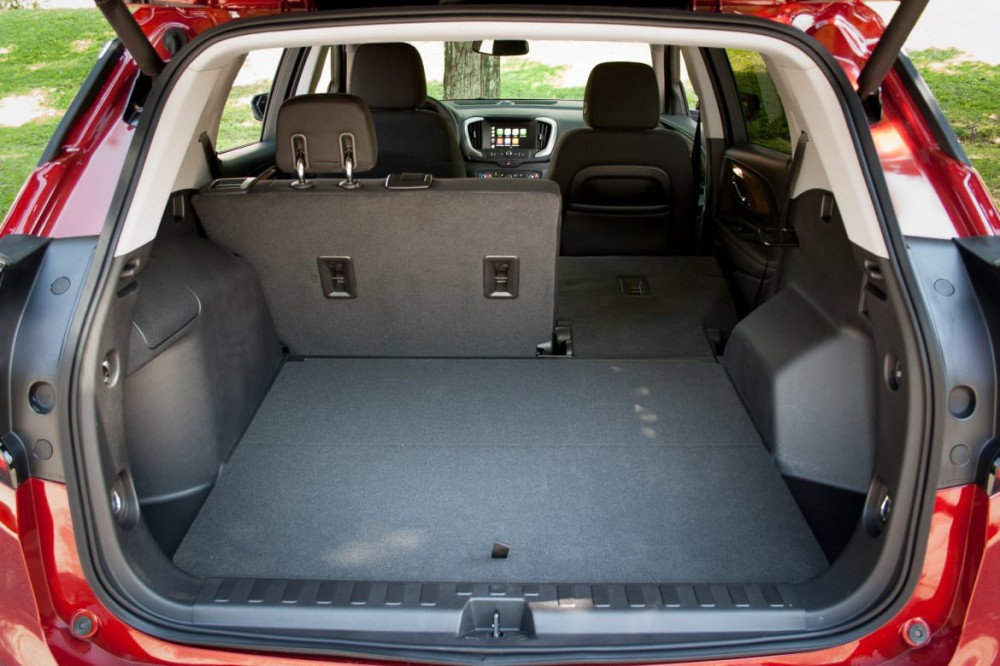
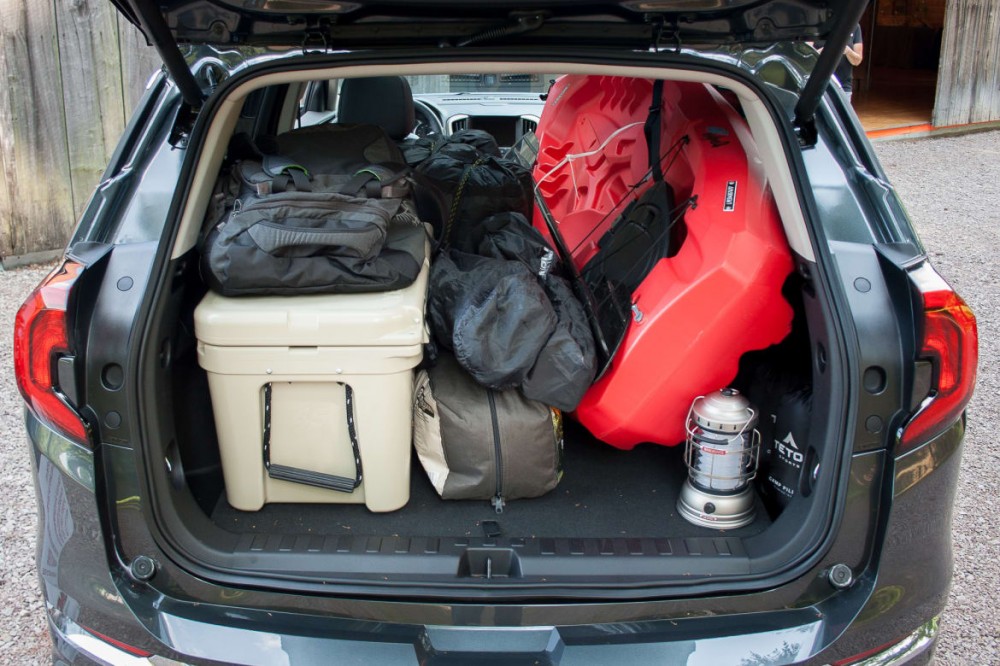
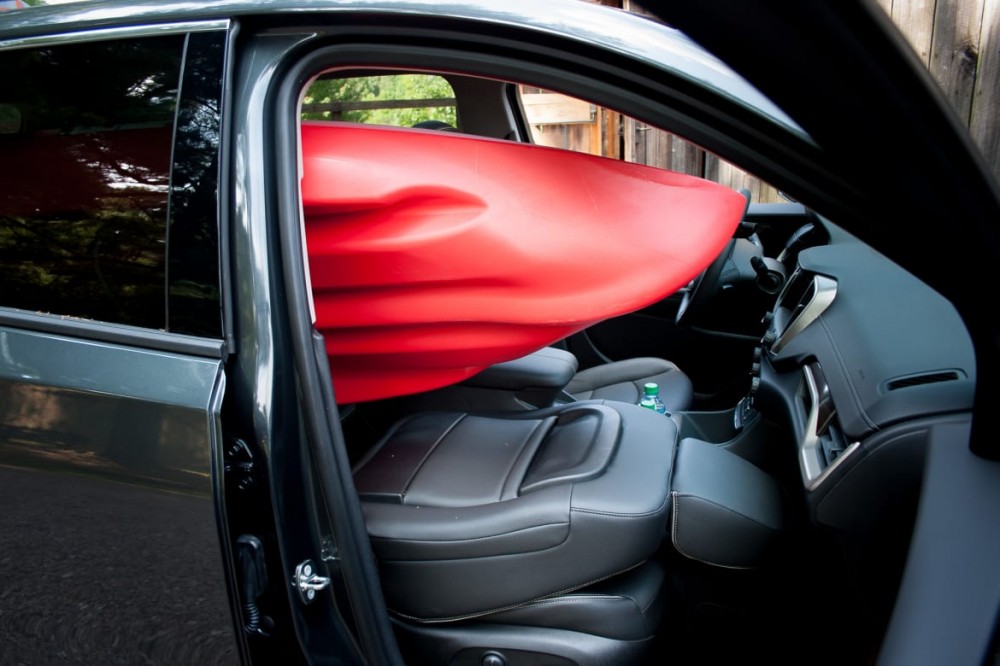
Safety
Neither the National Highway Traffic Safety Administration nor the Insurance Institute for Highway Safety had crash-tested the 2018 Terrain as of publication.
Numerous active safety features are available starting on the SLE trim. The Driver Alert Package I includes blind spot warning, rear cross-traffic alert and GM's Safety Alert Seat, which vibrates different areas of the cushion to alert the driver to potential hazards. The Driver Alert Package II adds forward collision warning with low-speed automatic emergency braking, lane-keeping assist and lane departure warning.
Value in Its Class
GMC has built itself into something of a near-luxury brand in recent years — especially with the popularity of its high-end Denali lineup, which the brand says accounts for nearly 30 percent of all sales. Even though higher-end trim levels can get pricey, the Terrain's starting price isn't significantly higher than many mainstream compact SUVs, and its base price undercuts near-luxury competitors like the Acura RDX, Buick Envision and Lincoln MKC by significant margins. How much value the Terrain brings will depend on which competitor you're considering, but no matter which group you stack it up against, the Terrain has the refinement, versatility and features to hold its own.








